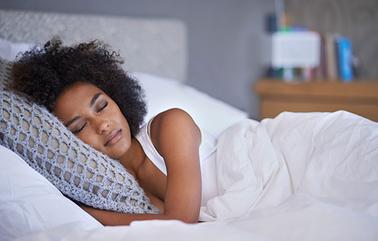There is nothing better than a good night of sleep, waking up refreshed and looking forward to the upcoming day. But many people struggle to achieve a restful night of sleep. A University College London study tracked the sleep duration of over 7,000 adults at their ages of 50, 60 and 70. They were followed for 25 years to assess overall health and the development of chronic diseases and conditions. Here is more from this study.
The researchers found that for those adults who slept five hours or less a night, there was a 30-40% increased risk over a 25-year period of developing a chronic disease(s) versus those with seven hours of sleep.
The chronic diseases and conditions impacted by inadequate sleep included:
- cardiovascular disease including high blood pressure, stroke, and irregular heartbeats.
- obesity- insufficient sleep can result in low energy to engage in exercise; some sleepy folks eat throughout the day thinking that it may provide more energy.
- Type 2 diabetes – the hemoglobin A1C reading is tends to be higher
- depression
The National Sleep Foundation has the following sleep recommendations:
- Teens: 8-10 hours
- Adults, 61-64 years: 7-9 hours
- Adults, 65+years: 7-8 hours
Good sleep hygiene is important to promote sufficient restful sleep every night. Here are a few suggestions for this to happen.
- Include time outside for the natural sunlight to help establish your circadian rhythm which helps with sleep. Have physical activity or exercise during the day, not right before bedtime.
- Eat meals at consistent times, with dinner at least three hours from bedtime. Eating right before bedtime results in restless sleep.
- Cut back on caffeine, at least later in the day. Some people do better without any caffeine in their diet. The biggest sources are caffeinated coffee, tea, dark sodas and energy drinks.
- Avoid drinking alcoholic beverages close to bedtime.
- Be consistent with sleep habits. Go to bed at night at the same time and get up in the morning at the same time – even on the weekends.
- It is best to stop using the computer, tablet, TV and smart phones at least one hour before bed so that your body and mind can begin to relax.
- Your bedroom should be cool with a temperature between 60-67 degrees.
- Keep the bedroom very dark, relaxing and quiet.
By: Rita Smith, RD

